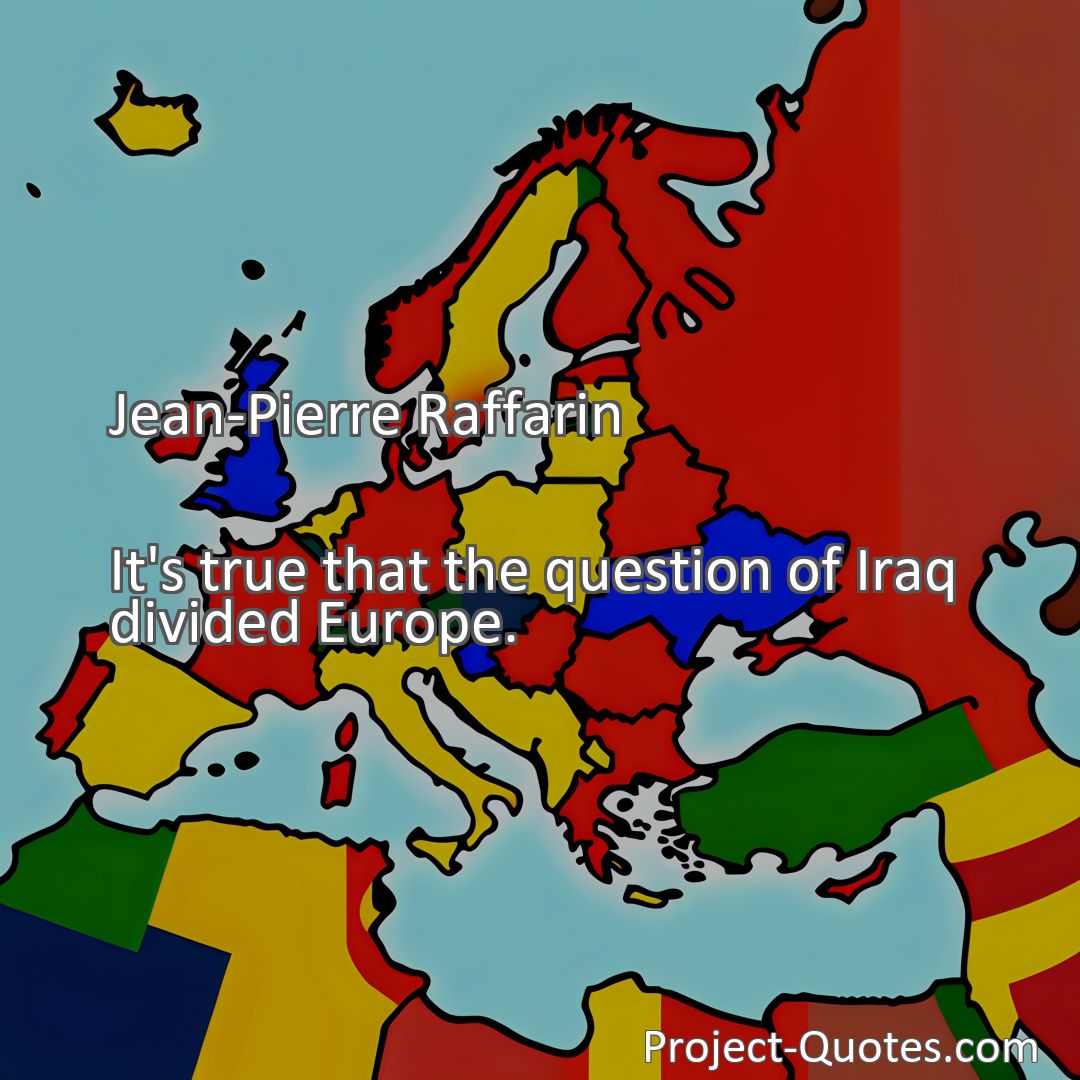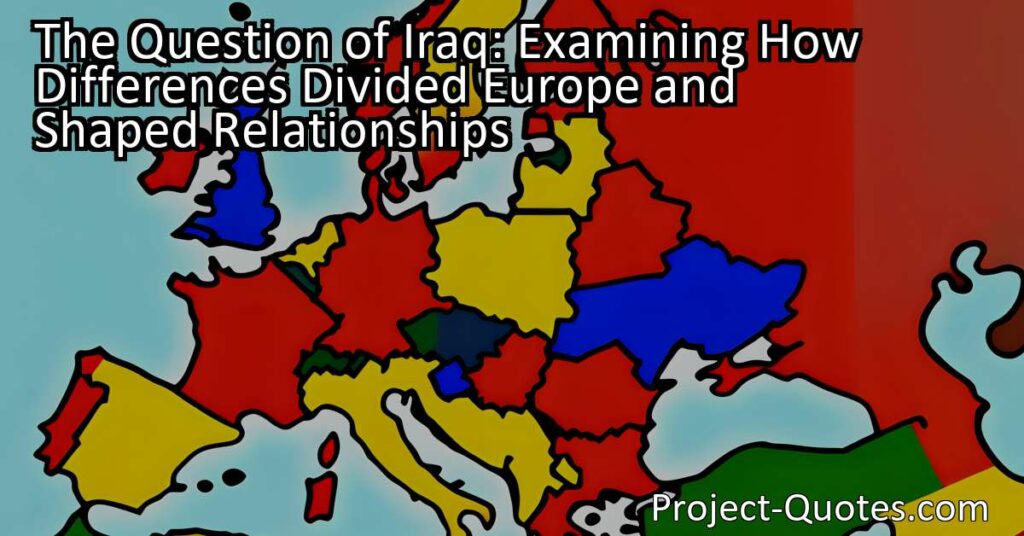It’s true that the question of Iraq divided Europe.
Jean-Pierre Raffarin
The division within Europe over the question of Iraq revealed underlying disagreements on the role of military intervention in international affairs. Some European countries favored diplomatic solutions and questioned the use of military force to achieve desired outcomes. This divergence highlighted differing approaches to global conflicts and international relations.
Table of Contents
Meaning of Quote – It’s true that the question of Iraq divided Europe.
In this quote by Jean-Pierre Raffarin, the former French Prime Minister, he highlights an important reality in recent history: the question of Iraq divided Europe. Examining this statement in depth allows us to understand how differing opinions on this issue created rifts among European nations and shaped their relationships.
The question of Iraq, specifically referring to the 2003 invasion led by the United States and its allies, was a highly controversial and divisive topic. Many European countries had varying stances on the invasion, resulting in a deep divide within the continent. This division was primarily rooted in differing perspectives on the legitimacy, legality, and implications of the invasion.
One of the key factors that contributed to the division was the disagreement on whether the invasion was justified from a legal standpoint. Some European countries, especially those who were part of the NATO alliance, supported the United States’ decision, asserting that it was necessary to prevent Saddam Hussein’s regime from possessing weapons of mass destruction. However, other nations, including France and Germany, opposed the invasion, arguing that it violated international law and bypassed the authority of the United Nations.
Additionally, there were different interpretations of the potential consequences of the invasion. While some European countries believed that removing Saddam Hussein from power would lead to stability and democracy in the region, others were more skeptical. France, in particular, was concerned about the potential for destabilization and the negative impact on the Middle East as a whole. These varying viewpoints on the likely outcomes further contributed to the divide within Europe.
National interests and historical relationships also played a significant role in shaping the divisions. France, for example, had historic ties with Iraq and had been a major arms supplier to the country. This connection, combined with opposing the invasion, influenced France’s position and made it reluctant to support military action. On the other hand, countries like the United Kingdom, which had close ties with the United States, were more inclined to support the invasion and join the coalition.
The media and public opinion were also instrumental in shaping the divisions across Europe. As the invasion was widely covered by the media, it sparked intense debates and discussions among European citizens. These discussions often mirrored the differing opinions of their respective countries, further deepening the divide. Political leaders were often influenced by public sentiment, making it challenging to find common ground among European nations on this issue.
The division over the Iraq question had broad implications for Europe’s unity and its relationship with the United States. The tensions created strained diplomatic relations and led to public disputes between leaders. In particular, the Franco-American relationship experienced a significant deterioration due to the opposing positions on Iraq. This strain not only affected bilateral ties but also extended to the broader transatlantic relationship.
Moreover, the division within Europe also revealed underlying disagreements on the role of military intervention in international affairs. Some European countries questioned the notion of using military force as a means to achieve desired outcomes, favoring diplomatic and peaceful solutions instead. This divergence in strategic thinking highlighted differing approaches to global conflicts and international relations.
Despite the deep division caused by the Iraq question, Europe eventually had to address the issue of rebuilding Iraq after the invasion. The reconstruction process presented an opportunity for European nations to find common ground and work together on shared objectives. Though the initial division had strained relations, many European countries provided aid and support for the reconstruction efforts, demonstrating the willingness to move forward and rebuild Iraq.
Looking back, it is evident that the question of Iraq divided Europe on multiple levels: legal, strategic, historical, and diplomatic. The differing opinions on the invasion, shaped by national interests and public sentiment, had profound implications for European unity and transatlantic relations. However, it is important to note that through subsequent efforts at cooperation and rebuilding, Europe was able to bridge some of the gaps caused by this division.
In conclusion, Jean-Pierre Raffarin’s statement on the question of Iraq dividing Europe captures a critical moment in recent history. The divisions within Europe over the legitimacy and consequences of the invasion highlighted various factors, including legal justifications, strategic considerations, historical relationships, and public opinion. These divisions strained diplomatic relations, challenged unity within Europe, and shaped its relationship with the United States. Nevertheless, Europe was able to find some common ground in post-conflict efforts, showcasing the resilience and ability to reconcile differences.
I hope this quote inspired image brings you hope and peace. Share it with someone who needs it today!


